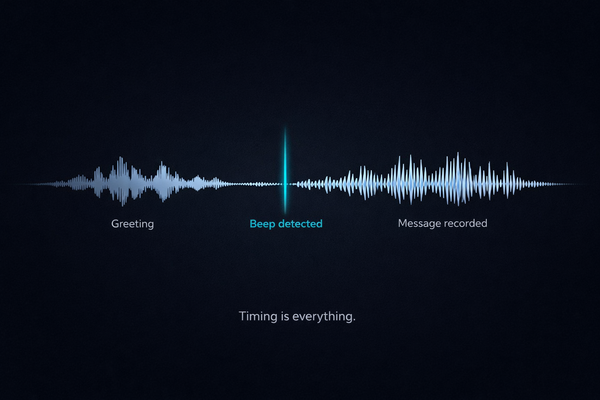[Meet The Team] AI-Native Engineering: How AI is Revolutionizing Software Development - Insights from Mukunth Krishnasagar at Anyreach
![[Meet The Team] AI-Native Engineering: How AI is Revolutionizing Software Development - Insights from Mukunth Krishnasagar at Anyreach](/content/images/size/w1200/2025/06/Meet-the-team-Mukunth.png)
The engineering landscape is experiencing a seismic shift. AI-powered development tools are not just enhancing workflows—they're fundamentally redefining what it means to be a software engineer.
In this episode of Anyreach Roundtable's "Meet the Team" series, Richard Lin speaks with Mukunth Krishnasagar, Co-founder and Head of Engineering at Anyreach, about how AI is transforming software development from the ground up. They explore the skepticism and enthusiasm surrounding AI adoption, the evolution of engineering roles, and the practical reality of building with AI-native tools. Mukunth shares candid insights on productivity gains, team dynamics, and why the future belongs to engineers who can blend technical expertise with product thinking.
Key Takeaways
• Skepticism to Superhuman – Early AI tools weren't production-ready, creating justified skepticism. Today's tools like Cursor are changing that narrative entirely.
• 5x Team Efficiency – AI enables small teams to accomplish what previously required 5x the engineering headcount, fundamentally changing resource allocation.
• Role Convergence – The future belongs to hybrid professionals who combine engineering skills with product thinking and business acumen.
• AI as Enabler, Not Replacer – AI eliminates boring, repetitive tasks, allowing engineers to focus on creative problem-solving and strategic work.
• Infrastructure First – Success with AI requires proper developer environments and testing frameworks to safely iterate at unprecedented speeds.
From Mechanical Engineering to AI-Native Development
Mukunth's journey reflects the non-linear career paths increasingly common in tech. Starting with a mechanical engineering degree in 2019, his passion for coding led him through self-taught programming, freelance development, and three years at Skit AI—one of India's leading voice AI companies—where he progressed from individual contributor to team lead.
Now co-founding and leading engineering at Anyreach, Mukunth brings a unique perspective on how AI is reshaping not just what engineers build, but how they build it.
The Great AI Divide: Skeptics vs. Believers
The engineering community has split into two distinct camps regarding AI adoption. Understanding this divide reveals deeper truths about technology adoption cycles.
Mukunth's initial skepticism wasn't unfounded. Early AI coding tools often created more work than they solved, requiring engineers to debug and fix AI-generated mistakes. The hype cycle promised revolution but delivered frustration.
The turning point came when AI tools reached "junior engineer level" capability—able to handle routine tasks reliably while freeing senior engineers for higher-level work.
The New Engineering Workflow: From Research to Deployment
AI has fundamentally altered every stage of the software development lifecycle:
Traditional research involving extensive Googling and Stack Overflow diving has been replaced by AI-powered research tools that provide contextual, relevant answers immediately.
The granular task breakdown that characterized traditional project management becomes unnecessary when AI can handle larger, more complex implementations.
AI excels at generating comprehensive test suites—historically the most neglected aspect of development due to their tedious nature.
The 5x Productivity Multiplier
Perhaps the most striking insight from Mukunth's experience is the quantified productivity gain:
This isn't just about writing code faster—it's about fundamentally rethinking team structure and resource allocation. Small, AI-augmented teams can now accomplish what previously required large engineering organizations.
The Infrastructure Imperative
Success with AI-powered development requires a complete rethinking of engineering infrastructure:
Safe Iteration Environments
With AI generating code at unprecedented speeds, robust development and staging environments become critical for maintaining quality and stability.
Review and Validation Processes
The role of senior engineers shifts from writing code to architecting solutions and reviewing AI-generated implementations. This requires new skills in prompt engineering and AI output evaluation.
The Evolution of Engineering Roles
The traditional boundaries between product management, design, and engineering are dissolving:
The Hybrid Professional
Future engineers need to combine technical depth with product intuition and user empathy. Pure technical specialists may find themselves displaced.
Democratized Development
The Future of AI-Native Development
Personalized User Interfaces
AI enables dynamic, personalized user experiences that adapt to individual users rather than one-size-fits-all interfaces.
Domain Expertise as Differentiator
The productivity gains from AI are exponentially higher for domain experts who know how to effectively direct AI tools.
Practical Advice for Engineers
For the Skeptical
Give AI tools another chance. The technology has evolved significantly from early disappointing experiences. Tools like Cursor now provide genuine productivity benefits.
For Current Practitioners
Focus on building robust development environments and testing infrastructure. The speed of AI-powered development requires proportionally stronger safety nets.
For Career Development
Develop hybrid skills combining technical expertise with product thinking and business understanding.
Conclusion
Mukunth's perspective offers a balanced view of AI's impact on software engineering. Rather than replacing engineers, AI is eliminating the mundane aspects of development while amplifying human creativity and strategic thinking.
The future belongs to engineers who embrace AI as a powerful collaborator, develop hybrid skill sets, and focus on the uniquely human aspects of technology leadership: vision, empathy, and strategic thinking.
For engineering leaders, the message is clear: the transformation is already underway. The question isn't whether to adopt AI-native development practices, but how quickly you can evolve your team and processes to leverage these revolutionary capabilities.
How to connect with Mukunth from Anyreach
Keywords: AI-native engineering, software development, Cursor, Codex, engineering productivity, AI tools, team efficiency, hybrid roles, development workflow




![[AI Digest] Agents Coordinate Plan Deploy Scale](/content/images/size/w600/2025/07/Daily-AI-Digest.png)